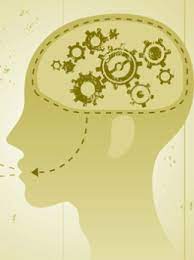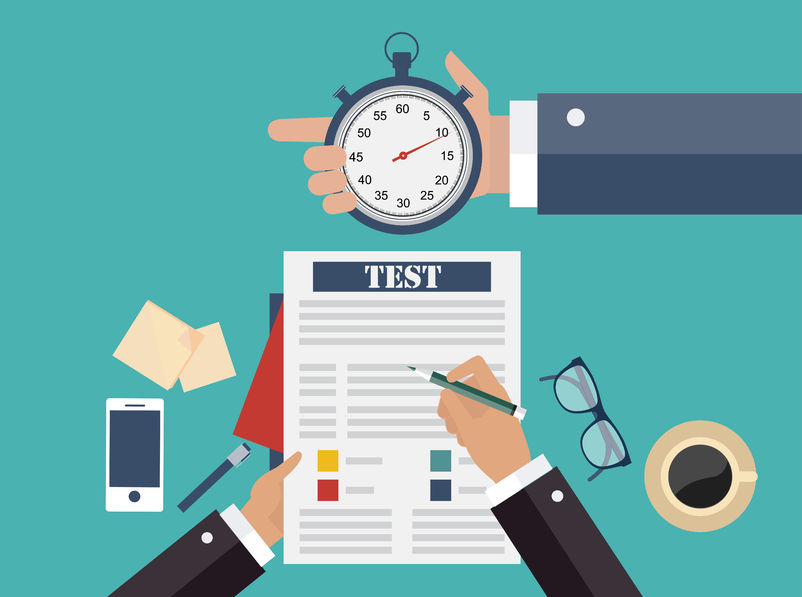One of the most important aspects of psychological evaluation is the use of psychological testing. Psychological testing provides a standardized measure of various cognitive and emotional functions. The results of these tests can provide information about an individual’s strengths and weaknesses, as well as areas that may require further assessment or treatment. It can also help your therapist develop a treatment plan that is specific to you.
Contents
- 1 What Does Psychological Testing Mean?
- 2 Techniques Used In Psychological Testing
- 3 Types Of Psychological Tests
- 4 Characteristics Of A Good Psychological Test
- 5 What To Expect From Psychological Testing?
- 6 Benefits Of Psychological Testing
- 7 Limitations Of Psychological Testing
- 8 Conclusion
- 9 A Word From Therapy Mantra
What Does Psychological Testing Mean?

Psychological testing refers to the use of standardized measures to assess cognitive and emotional functioning. These tests are used to evaluate individuals for a variety of reasons, including academic achievement, intellectual giftedness, disability identification, career planning, and forensic evaluations. Psychologists often use tests and other assessment tools to moreover measure and observe a client’s behavior to arrive at a diagnosis and guide treatment.
Techniques Used In Psychological Testing
A psychological evaluation can be carried out in various ways. In applied psychology, the most commonly practiced techniques of testing include
- pen-paper multiple-choice questions
- subjective/descriptive questions
- questionnaires
- surveys
- clinical interviews
- observations
- medical examinations
Types Of Psychological Tests
 A variety of different psychological tests can be used, depending on the area of concern. Some of the most common types of tests furthermore include:
A variety of different psychological tests can be used, depending on the area of concern. Some of the most common types of tests furthermore include:
Intelligence Tests
Intelligence testing is used to measure an individual’s general mental ability or cognitive ability. This category tests an individual’s ability to think rationally, act purposefully, and effectively deal with the environment. In addition, this type of test typically includes questions that measure problem-solving skills, verbal knowledge, as well as mathematical ability. Some of the most widely used intelligence tests are:
- Stanford-Binet Intelligence Scale
- Wechsler Intelligence Scale for Children
- Wechsler Adult Intelligence Scale
Achievement Tests
Achievement testing measures an individual’s academic skills or knowledge. It analyzes the performance on basis of what an individual has learned. This type of test typically includes questions that measure reading comprehension, math skills, and writing abilities. Some common examples include:
- Spelling tests
- Map quizzes
- Wechsler Individual Achievement Test
Attitude Tests
Attitude tests assess a person’s beliefs, behaviors, adjustments, and general approach to the outside world. It also determines an individual’s outlook toward problem-solving. Some known and trusted used tests are
- Likert Scale
- Thurstone Scale
Aptitude Tests
Aptitude tests assess a candidate’s cognitive abilities. They predict the likelihood of success in an academic/professional assessment. Some commonly included tests have examples such as:
- Abstract Reasoning Test
- Numerical Reasoning Test
- Verbal Reasoning Test
- General Aptitude Test
- Spatial Reasoning Test
- Psychometric Test
- Logical Reasoning Test
Personality Tests
Personality tests measure an individual’s personality traits. These can also be useful to gain insights into a person’s lifestyle, perceptions, and motivations. Some well-known tests include
- Myers-Briggs Type Indicator
- 16 Personality Factor Questionnaire
- Eysenck Personality Inventory
- DISC assessment
- Minnesota Multiphasic Personality Inventory
Neuropsychology Tests
A neuropsychological test measures how well functioning an individual’s brain is. These can further assess your memory, motor functions, cognitive abilities, perception, and critical thinking. Commonly used test names include examples such as
- Benton Visual Retention Test
- Wisconsin Card Sorting Test
- Halstead Reitan Neuropsychological Test Battery
Characteristics Of A Good Psychological Test
- Objectivity is the degree to which a test’s results are obtained the same by scoring different scorers, without any influence of their biases on scoring.
- Reliability is the extent to which the test result remains consistent.
- Validity is the ability of a test to measure what it claims to measure.
- Norms refer to the average score of an individual out of a certain population.
- Practicability is further administered by how practical a test is. This criterion is evaluated based on factors such as length, duration, difficulty, and understanding.
What To Expect From Psychological Testing?

Most psychological tests are administered in a clinic or office setting. The test generally takes between 60 and 90 minutes to complete. You will also have to read and sign a consent form. This further authorizes the examiner to release test results to you. Depending upon the nature of the quiz, some answers may also require you to answer orally. Questions can furthermore range from being about language, general knowledge, reasoning, numerical, and reading, among other things. You can also ask any questions you have about the test or its results.
It is, however, important to remember that psychological assessments don’t have any right or wrong answers. Furthermore, these tests do not require a high score to be seen as efficient. Being honest with your answers is, hence, crucial to giving an honest reflection of your abilities and thoughts.
Benefits Of Psychological Testing
Psychological testing is very beneficial in various ways.
- It assesses an individual’s emotional strengths and weaknesses, which can further help them improve their performance.
- A person gains more clarity on their cognitive functioning and works on areas that need help or assistance.
- It can further help in determining whether an individual has an underlying mental illness or disability, which might need therapeutic intervention.
- An effective treatment plan specific to the individual’s needs can also be tailored.
- A candidate’s vocational ability also gets assessed and evaluated for a particular exam/job.
Limitations Of Psychological Testing
Like every other psychological phenomenon, testing also has certain drawbacks.
- It tends to have biases. Since these tests don’t administer demographics like culture, socio-economic status, educational background, etc., they can affect the results.
- The results and observations may be open to interpretation. These interpretations also depend upon the context of the situation. This can, moreover, have undesired effects on the test results.
- A poorly constructed test with no validity or reliability may moreover give false results, which can cause obstacles in an individual’s evaluation.
Conclusion
If you are considering psychological evaluation, be sure to ask your therapist about the use of psychological testing. The results of these tests can further provide invaluable information that can help you get the most out of your therapy. If you’re feeling lost, frustrated, or stuck in life, don’t hesitate to reach out for help. A qualified therapist can also assist you in finding the resources and tools you need to overcome whatever challenges you’re facing.
A Word From Therapy Mantra
Your mental health — Your psychological, emotional, and social well-being — has an impact on every aspect of your life. Positive mental health essentially allows you to effectively deal with life’s everyday challenges.
At TherapyMantra, we have a team of therapists who provide affordable online therapy to assist you with issues such as depression, anxiety, stress, workplace Issues, addiction, relationship, OCD, LGBTQ, and PTSD. You can book a free therapy or download our free Android or iOS app.


